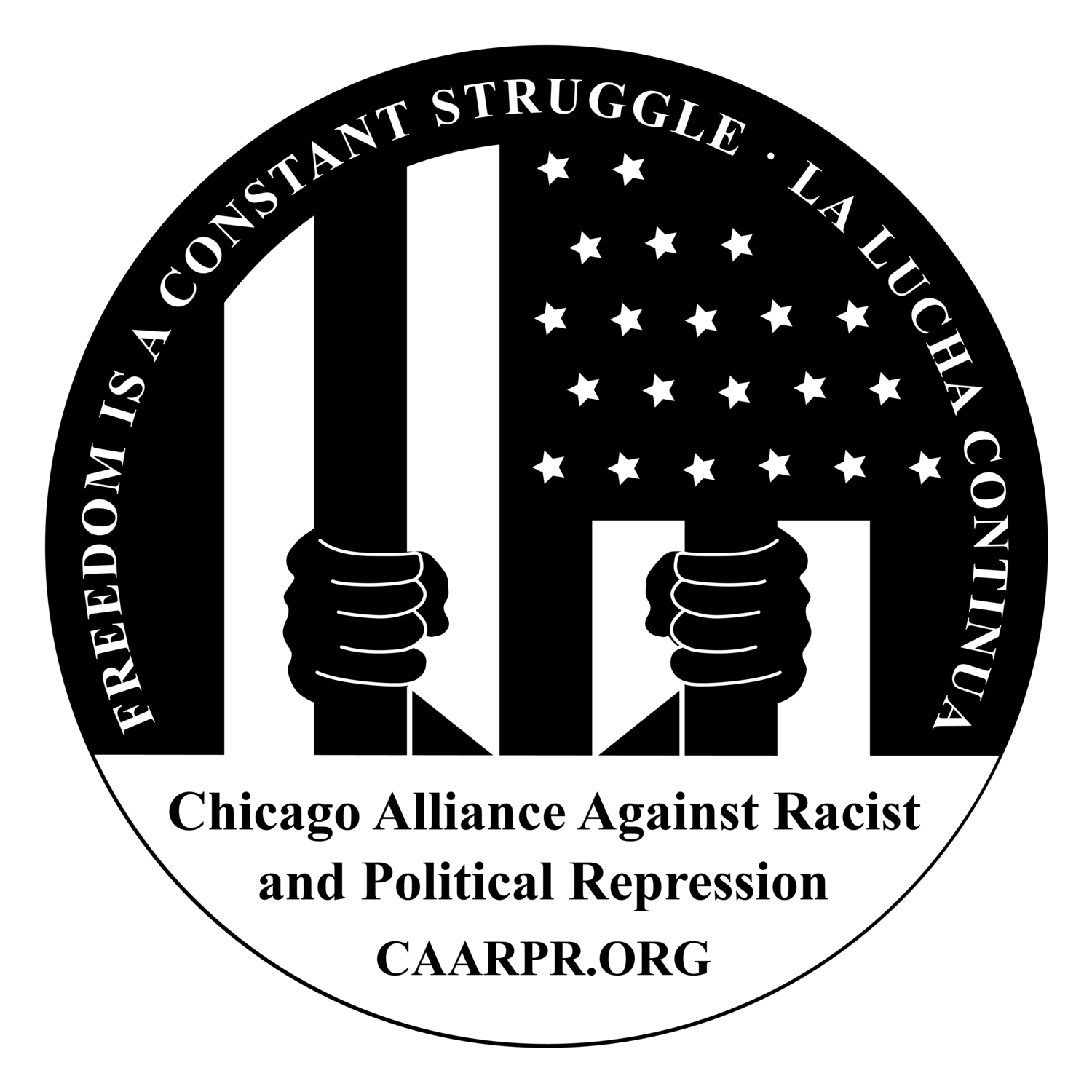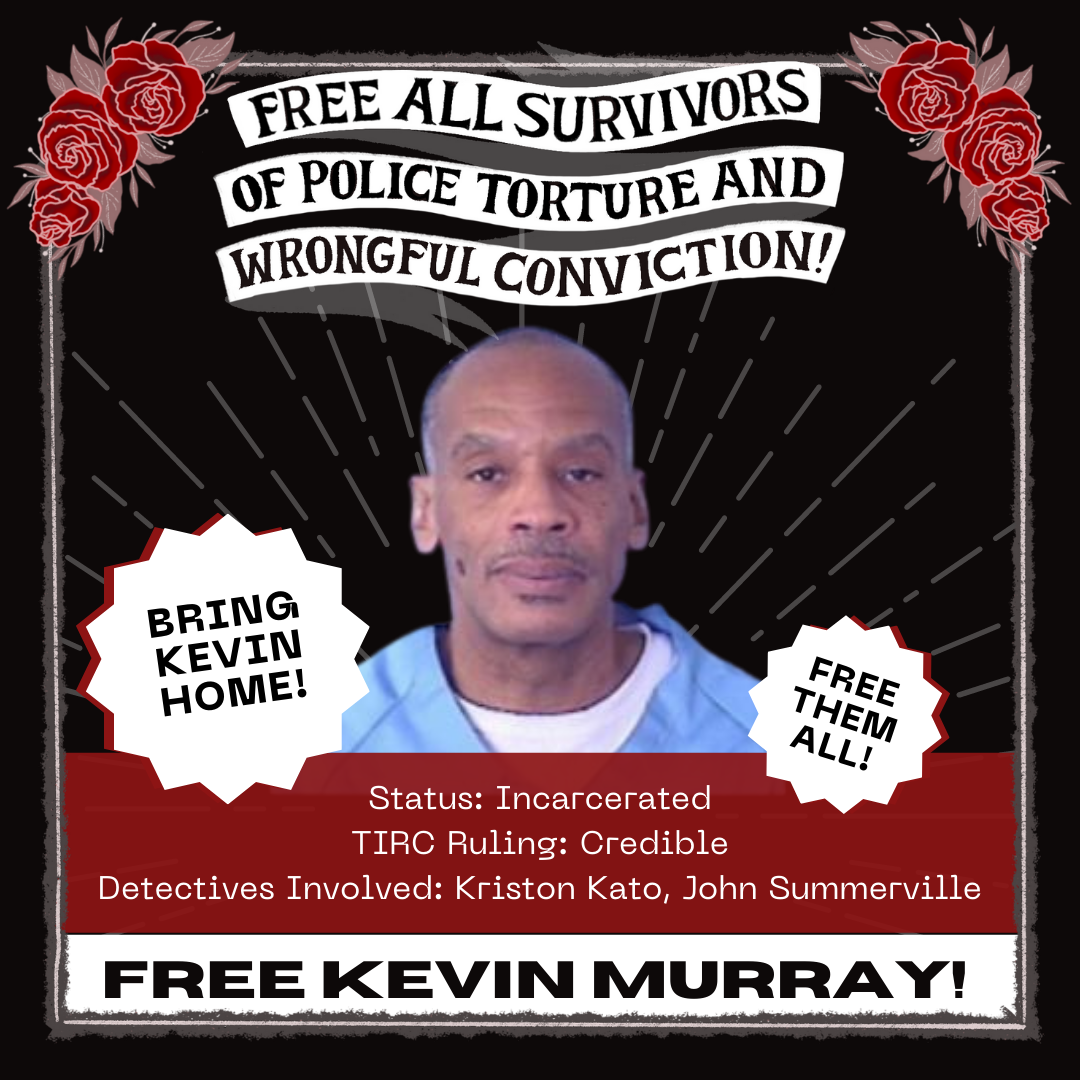SURVIVOR STORIES
KEVIN MURRAY
Kevin Murray, age 24, and co-defendant, Tyrone Washington, were convicted of a double murder on September 11, 1990. During interrogations from January 18 through January 20, 1988, Detectives beat Murray. Murray claims that as a direct result of this sustained abuse, he gave a coerced confession to murder. He signed a written confession that led to his conviction for murder and was sentenced to natural life in confinement. Murray and Washington were both convicted of the gang-related double murder of Brain Fowler and DeJuan Buck. This case was heard before Judge Thomas Maloney, who has a history of proven corruption that calls into question any case that is brought before him.
The murders of Fowler and Buck occurred in November of 1987. Co-defendant Tyrone Washington alleges that he was the shooter while Murray drove the getaway car. After detectives contacted Murray’s mother to get in contact with Murray, he voluntarily agreed to meet with the detectives to answer questions. However, before he could go to the station he was handcuffed and brought into custody by Detectives Kriston Kato and John Summerville.
Murray was escorted by police to the station while accompanied by his aunt because he was a minor at the time. After his aunt left, Murray was placed in a room alone with Detective Kato who began to punch and kick him repeatedly. The detectives told Murray that he would leave and come back and if Murray did not answer the questions the beatings would continue. When Detective Kato returned 15 to 20 minutes later he asked the same questions, and when Murray gave the same answers the detective kicked and hit Murray again repeatedly.
At this time, Murray asked the detectives to bring his girlfriend in to corroborate his story and answers. When his girlfriend arrived, he attempted to tell her about the abuse, at which point she was taken away immediately. The detectives returned and told Murray his girlfriend had told them the truth and he was lying and they began to beat him again punching him in the head and stomach. The detectives then brought in Washington, who named Murray as an accomplice. The officers proceeded to ask Washington questions in front of Murray. Washington’s answers were different from Murray’s. Murray said the co-defendant was lying and again he was beat. At this point, around 2 a.m., Murray asked for his aunt or to call his mom so that she could get him a lawyer. The detectives told him no.
Murray was left alone in the interrogation room without food, or water, or the option to use the bathroom until 4 p.m. the next day. When the detectives returned they told Murray he had to take a polygraph test. He was moved to another location to take the polygraph. Later when he returned to the police station Detective Kato proceeded to kick and slap Murray. Detective Summerville arrived in the room and barricaded the door with a chair, and then proceeded to kick, slap and punch Murray repeatedly. Murray submitted, and agreed to do anything the detectives wanted.
Murray asked Summerville again for a lawyer, at which point Summerville mocked him and then started punching Murray again. Murray once again said he would do anything Summerville wanted. Summerville stopped, and Kato came back in and said “See, I told you, if you did what we want you to, you could have been home by now.” Kato then started rehearsing the statement with Murray. Shortly after, Murray’s statement was taken by ASA Lavin and Murray was told that if he signed the confession he could go home. There was a lack of any physical evidence against Murray, which may have provided a motive to induce a confession.
Other than the vague testimony of Washington, there was no evidence at the time of the arrest or afterwards that Murray was guilty of a crime. Murray testified that everything in his courtreported confession was false except his name. A jury convicted Murray on September 11, 1990 under Judge Thomas Maloney, who sentenced him to life in prison. In 1993, Judge Thomas J. Maloney was convicted for a series of judicially corrupt acts. He was charged with “fixing” three murder trials between May 1981 and June 1985.
In 2013 Murray filed his first post-conviction petition. Murray said he had never filed any postconviction petitions prior because he didn’t know the legal system, didn’t trust jailhouse lawyers, and couldn’t get anyone to represent him.
The Illinois Torture and Relief Inquiry Commission concluded in March of 2017 that there is sufficient evidence of torture to merit judicial review for Kevin Murray’s case.
In this case, the chief detectives, the presiding judge, and the attorney who briefly represented Murray (and testified on his behalf) were all found guilty of misdemeanor or felony crimes, casting doubt on their credibility. In addition, the lack of any notes by police officers and the lack of a felony review memo by the State’s Attorney who took the confession are troubling. Combine those irregularities with the lengthy abuse allegation histories of Detectives Summerville and Kato and the various authorities’ convictions, and there is no question as to the sufficiency of evidence meriting judicial review in this case. Murray is still incarcerated at Statesville Correctional Center serving a sentence of natural life while awaiting a new trial and justice for the cruel treatment he received.

